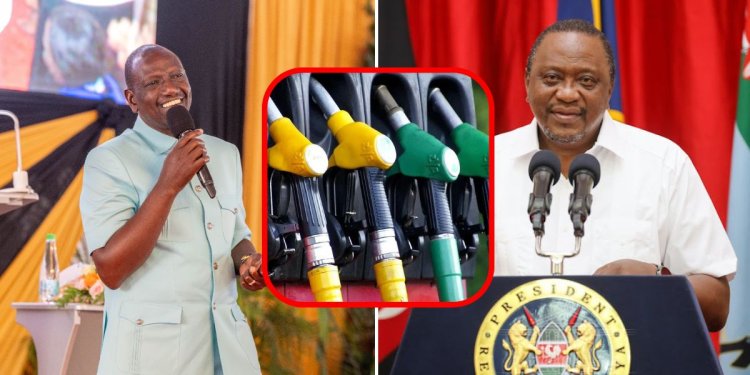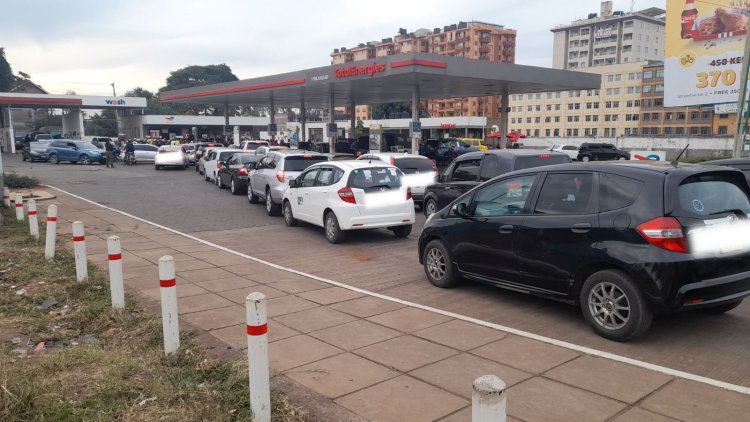Ruto Makes U-Turn On Uhuru Fuel Subsidy
EPRA also noted that the increased landing costs also occasioned the return of fuel subsidies, a matter which President Ruto had campaigned against

The Energy and Petroleum Regulatory Authority (EPRA) on Monday, August 14 reinstated the fuel subsidy that was scrapped by President William Ruto on September 15, 2022.
While revealing this month's fuel prices, EPRA outlined that the Petroleum Development Fund was reinstated to protect Kenyans from the high cost of fuel brought about by the doubling of the Value Added Tax (VAT) on fuel from 8 to 16 per cent.
EPRA also noted that the increased landing costs also occasioned the return of fuel subsidies, a matter which President Ruto had campaigned against and argued that taxpayers spent a total of Ksh144 billion, a whooping Ksh 60 billion in the 4 months preceding his assumption of office.

Motorists queuing for fuel at a petrol station in Nairobi. /MARVIN CHEGE.VIRALTEAKE
The price for Super Petrol was calculated at Ksh202.01, Diesel at Ksh183.26, and Kerosene at Ksh175.22, without the fuel subsidy, thus the oil marketers were compensated Ksh7.33, Ksh3.59, and Ksh5.74 respectively.
With the subsidy in place, the government retained the fuel prices for the month between August 15 and September 14, from the previous month. Right now, Super Petrol, Diesel, and Kerosene retail at Ksh194.68, Ksh179.67, and Ksh169.48 in Nairobi.
"In order to cushion consumers from the spike in pump prices as a consequence of the increased landed costs, the government has opted to stabilize pump prices for the August-September 2023 pricing cycle," EPRA explained.
"Oil Marketing Companies will be compensated from the Petroleum Development Fund."
Inside Uhuru's Subsidy Programme
The subsidy programme was initiated by former President Uhuru Kenyatta to moderate the fuel prices, which have an adverse effect in terms of the cost of foodstuffs as well as matatu fares within the city.
Through the subsidy programme, Kenya, under Uhuru, spent an average of Ksh7.65 billion monthly to subsidise diesel, super and kerosene.
However, President Ruto was among the strongest critics of the subsidy programme and during his inaugural speech on September 13, 2022, he expressed his plans to end the subsidy, arguing that a few individuals were benefitting from the programme at the expense of the taxpayers who had to foot the bill for the importers.
"If the subsidy continues to the end of the financial year, it will cost the taxpayer Ksh280 billion, equivalent to the entire national government development budget," he stated.
In his speech, however, he did not mention an intervention plan to save Kenyans from the high cost of living which was eventually made worse in the event fuel prices went up after the removal of the subsidy.







